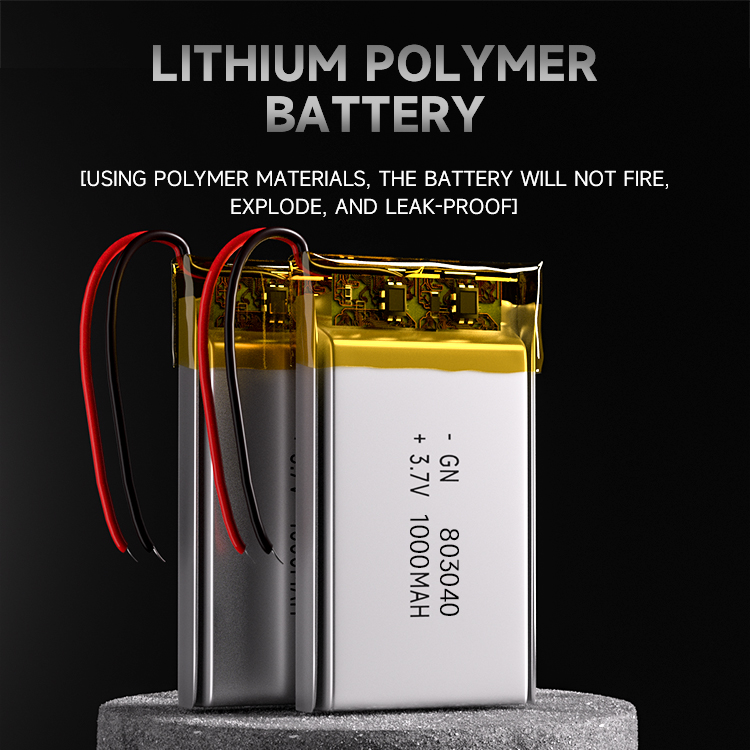Time:2024.12.25Browse:0

Usually, 11.1V remote control aircraft model lithium batteries are composed of three lithium cells connected in series (3S1P), with each cell having a voltage of 3.7V. The voltage indicated on the lithium battery of models, mobile phones, cameras, etc. is called the indicated voltage, which is obtained from the average operating voltage. The actual voltage of a single lithium battery cell is 2.75-4.2V, and the capacitance indicated on the lithium battery is the amount of electricity obtained by discharging from 4.2V to 2.75V. The lithium battery of the remote control aircraft model must be maintained within the voltage range of 2.75-4.2V for use. If the voltage of the remote control aircraft model lithium battery is lower than 2.75V, it is considered excessive discharge. The lithium battery will expand, and the internal chemical liquid will crystallize. These crystals may pierce the internal structural layer, causing a short circuit, and even causing the lithium battery voltage to zero. If the voltage of the remote control aircraft model lithium battery is higher than 4.2V, it belongs to overcharging. The internal chemical reaction is too intense, and the lithium battery will inflate and expand. If it continues to be charged, it will expand and burn. Both over discharge and over charge can cause significant damage to the remote control aircraft model lithium battery. 1. Charging current 1-1: The charging current should not exceed the maximum charging current specified in the specifications (usually 0.5~1.0C or less). Charging with a current higher than the recommended current may cause problems with the battery's charging and discharging performance, mechanical performance, and safety performance, and may also cause heating or leakage. It is recommended not to frequently use 5C charging for aircraft model batteries sold in the market to avoid affecting battery life. 1-2 Charging voltage: The charging voltage shall not exceed the specified limit voltage (4.2V/single battery), with 4.25V being the highest limit of each charging voltage. (Direct charging is strictly prohibited, otherwise it may cause overcharging of the battery cell, and the user shall bear the consequences caused by incorrect use of the battery.). 1-3 Charging temperature: The battery must be charged within the environmental temperature range specified in the product specification, otherwise the battery is susceptible to damage. When the surface temperature of the battery is found to be abnormal (meaning that the surface temperature of the battery exceeds 50 ° C), charging should be stopped immediately. 1-4 Reverse charging: Connect the positive and negative poles of the battery correctly, and reverse charging is strictly prohibited. If the positive and negative poles are connected in reverse, it will not be possible to charge the battery. Reverse charging can cause damage to the battery, even leading to heating, leakage, and ignition. 2. Discharge current 2-1: The discharge current should not exceed the maximum discharge current specified in the specification (acknowledgement). Excessive discharge current can cause a significant decrease in capacity and cause the battery to overheat and expand. 2-2 Discharge temperature: The battery must discharge within the operating temperature range specified in the specification. When the surface temperature of the battery exceeds 70 ° C, it should be temporarily stopped until the battery cools to room temperature. 2-3 Overdischarge: Overdischarge can cause battery damage, and the voltage of the individual battery should not be lower than 3.6V during discharge. 3. Storage batteries should be stored in a cool and shady environment. When storing batteries for a long time (over 3 months), it is recommended to place them in an environment with a temperature of 10-25 ° C and low temperature without corrosive gases. During long-term storage, batteries are charged and discharged every 3 months to maintain battery activity and ensure that the voltage of each cell is within the range of 3.7-3.9V.
Read recommendations:
21700 4800MAH 3.7V
Advantages of power batteries.LR1130 battery
Lithium battery development
solar energy storage battery pack
3.7v 18650 battery pack